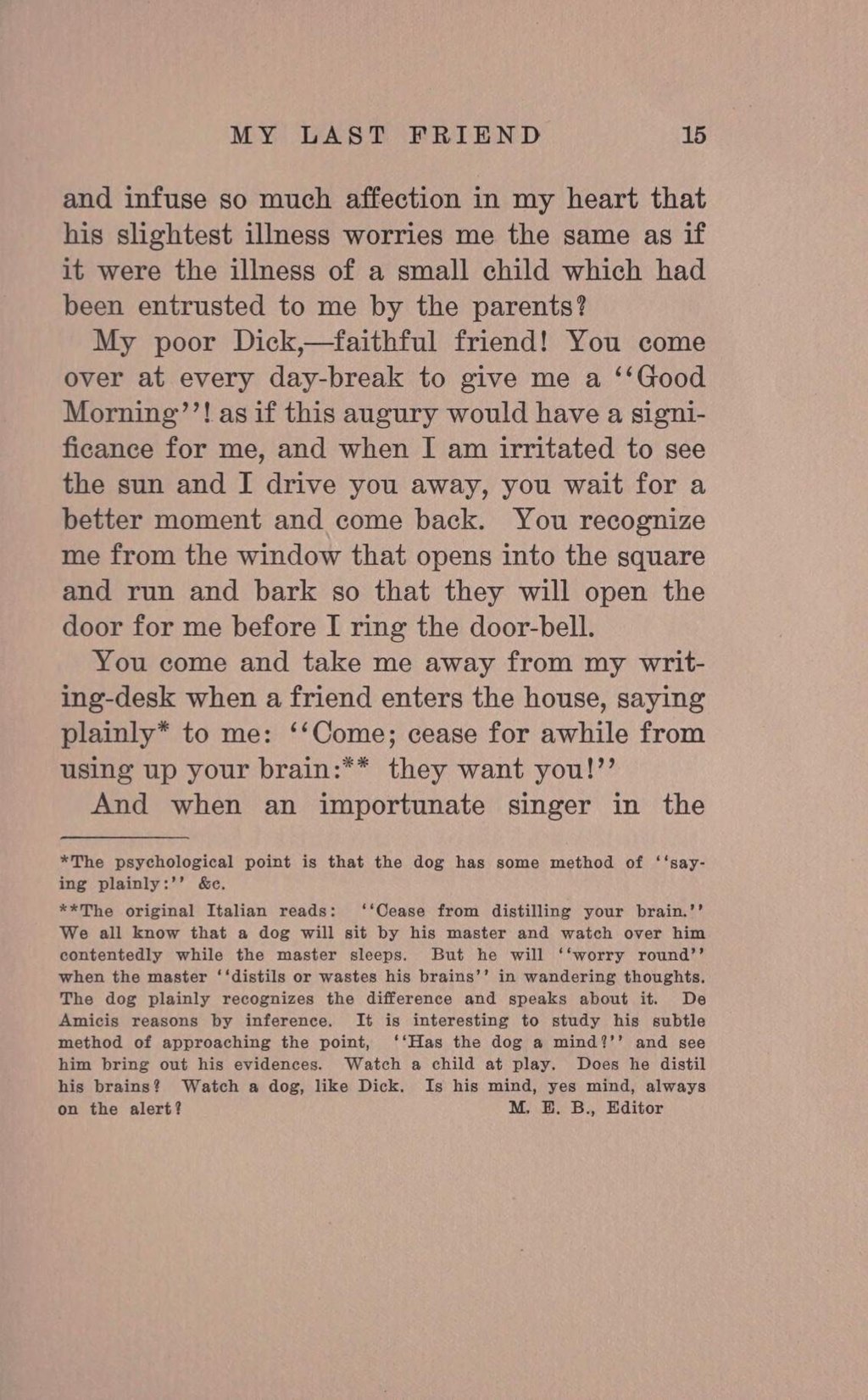and infuse so much affection in my heart that his slightest illness worries me the same as if it were the illness of a small child which had been entrusted to me by the parents?
My poor Dick,—faithful friend! You come over at every day-break to give me a "Good Morning"! as if this augury would have a significance for me, and when I am irritated to see the sun and I drive you away, you wait for a better moment and come back. You recognize me from the window that opens into the square and run and bark so that they will open the door for me before I ring the door-bell.
You come and take me away from my writing-desk when a friend enters the house, saying plainly[1] to me: "Come; cease for awhile from using up your brain:[2] they want you!"
And when an importunate singer in the
- ↑ The psychological point is that the dog has some method of "saying plainly:" &c.
- ↑ The original Italian reads: "Cease from distilling your brain." We all know that a dog will sit by his master and watch over him contentedly while the master sleeps. But he will "worry round" when the master "distils or wastes his brains" in wandering thoughts. The dog plainly recognizes the difference and speaks about it. De Amicis reasons by inference. It is interesting to study his subtle method of approaching the point, "Has the dog a mind?" and see him bring out his evidences. Watch a child at play. Does he distil his brains? Watch a dog, like Dick. Is his mind, yes mind, always on the alert? M. E. B., Editor

